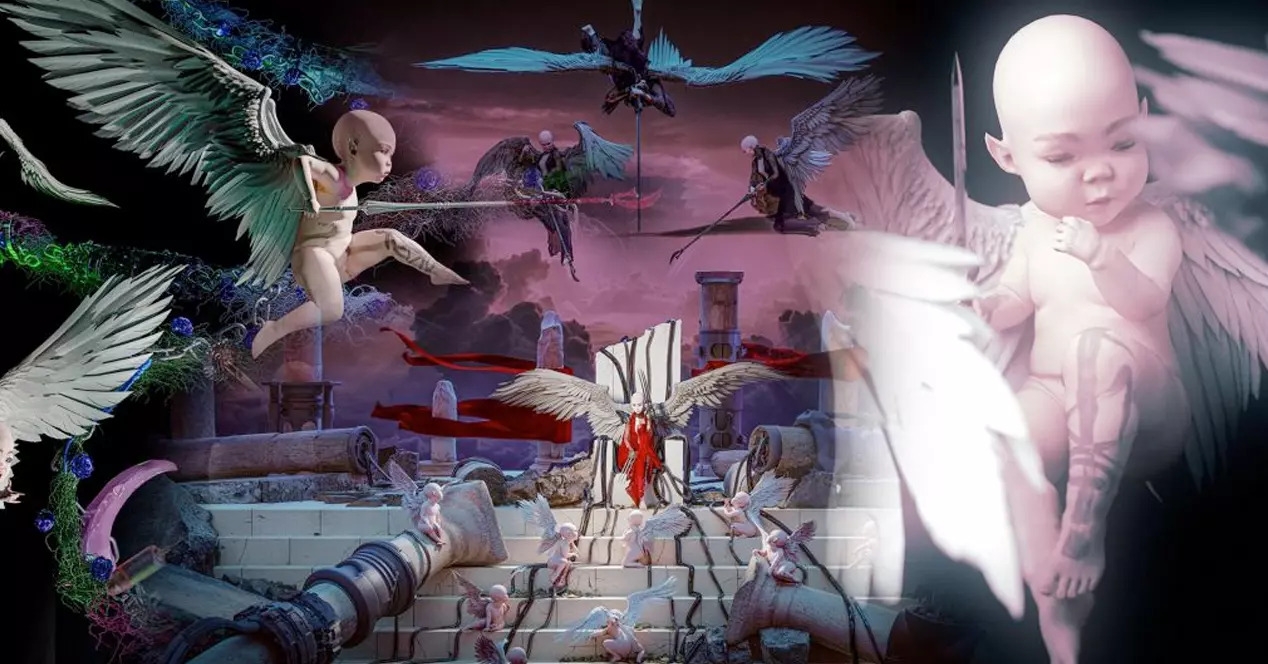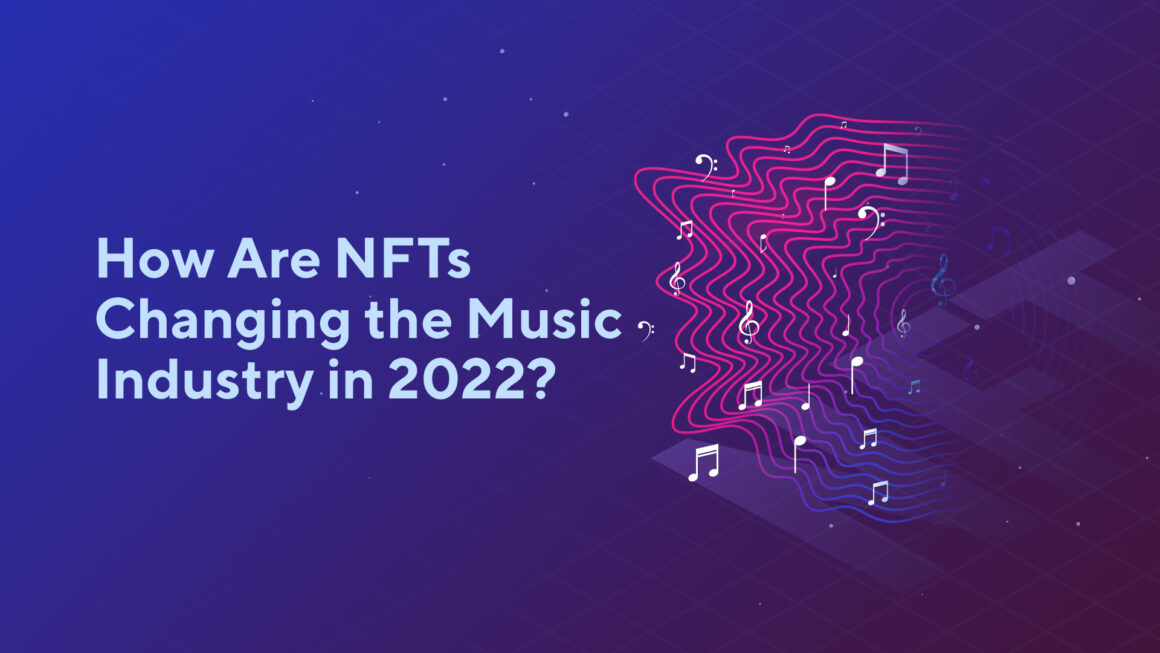NFT is attracting dozens of musicians, from young stars like Grimes to rock legends like The Rolling Stones. Crypto enthusiasts believe that NFTs can change the entire music market, making it more democratic and fair as well as bringing artists closer to their fans.
We decided to find out how the NFT market can change the music industry, how the sector of music NFT platforms works, and what are the prospects for its development. Let’s get started!
How NFTs Are Shaking Up the Music Industry
The NFT sector experienced a dramatic rise last year. Today, NFTs are successfully used in digital art, gaming, fashion, fan and sports services, and the metaverse sector.
The music sector is no exception — hundreds of artists and musicians have already released their own NFTs to interact with their fans. Such tokens can be issued for a song, album, video, concert tickets, photos, performance rights, shares in royalties, merchandising, etc.
Let’s consider the largest and most illustrative cases of using NFT among musicians in 2021.
February
Canadian electronic music pioneer Jacques Greene sold the NFT single ‘Promise’ for $23,000. A few days later, DJ and music producer 3LAU (Justin Blau) made $11.6 million in 24 hours by selling NFTs on his own tracks. At the same time, he sold his first NFT in the fall of 2020. That same month, Linkin Park’s founder, Mike Shinoda, sold a teaser of his song ‘One Hundredth Stream’ for $30,000 at a charity auction.
March
Earlier this month, Canadian singer Grimes sold 10 NFT digital artwork and videos, some of which were accompanied by original songs. In total, this collection brought the performer $5.8 million and was sold out in 20 minutes.
A few days later, the American rock band Kings of Leon sold digital copies of their new album ‘When You See Yourself’ as NFTs for $1.45 million. The promotion offered exclusive versions of the album, unique digital illustrations, and lifetime concert passes.
A couple of days later, American DJ Steve Aoki, in collaboration with renowned visual artist Anthony Tudisko, sold 11 NFT videos with the musician’s tracks for $4.25 million.
In the same month, the English duo Disclosure sold an NFT picture for $140,000 to a group of fans who, along with the token, received the right to free lifetime passes to the band’s concerts.

April
Dutch DJ Don Diablo sold a recording of a one-hour set and a flash drive with a video for $1.26 million as an NFT. In the same month, Brooklyn singer VÉRITÉ sold the rights to the studio version of her new track for $27,000 (excluding publishing rights and recording control) and 2 VIP tickets for all future performances of the artist.
Eminem released an NFT collection ‘Shady Con’ with action figures and original instrumental beats and sold it for $1.78 million. Mick Jagger of The Rolling Stones sold an NFT for a teaser of his song ‘Eazy Sleazy’ for $50,000.
May
Texas choir Verdigris sold a recording of the classic Betty’s Notebook as an NFT for $375,000. In the same month, trance musician BT sold the rights to the Genesis.json service, which generates continuous music content from 15,000 audio and visual passages, as an NFT. The unique NFT was sold for $212,000.
August
Canadian rapper Tory Lanez sold a limited edition of his new album in 57 seconds — a million copies in NFT format for $1 apiece. Token holders also got the opportunity to hold virtual meetings with the musician, listen to unreleased tracks, receive signed merch, etc.
October
The album ‘Once Upon a Time in Shaolin’ by the Wu-Tang Clan was sold to the decentralized autonomous organization PleasrDAO for $4 million. The album was released in the singular in 2014 and sold at auction to entrepreneur Martin Shkreli in 2015. That same year, Shkreli was arrested, and the album was confiscated and later resold. As a result, the album got to the PleasrDAO crypto community. The developers held a closed festival, party, and concert with the participation of Chris Rock, comedian Aziz Ansari, The Strokes, and other artists for Bored Ape Yacht Club (BAYC) token holders.
December
An unreleased demo track by Whitney Houston was sold as an NFT for $999,999.
This list could be continued for a long time: it would include hundreds of performers. After all, NFTs allow musicians not only to sell a token for a song but also to provide access to exclusive content or unique opportunities.
For example, David Bowie’s Melos X series on Binance NFT featured unreleased audio, photos, and behind-the-scenes stories of the legendary musician. And Canadian singer Shawn Mendes has released NFT versions of his own guitar and ring.
How Is the Music NFT Platform Market Developing?
There are already dozens of dedicated music NFT platforms on the market. Let’s take a look at the largest ones:
-
- OneOf is a platform launched in June 2021 and powered by Tezos. Releases include tracks by Whitney Houston, Charlie Puth, Jacob Collier, Doja Cat, TLC, G-Eazy, and AURORA, among others;
-
- Catalog is one of the first dedicated music NFT platforms, launched in March 2020. The service hosts tracks from hundreds of different artists;
-
- Origin Protocol is an Ethereum-based NFT platform that ranked second by sales volume of music NFTs last year;
-
- Opulous is an Algorand-powered NFT platform where artists can share royalties from NFTs (track royalties) with NFT buyers;
-
- Audius is an analog of classic streaming services but on the Ethereum and Solana blockchains. The service has more than 7 million monthly active users. Among the musicians who posted their tracks on the platform are Diplo, Weezer, Odesza;
-
- E-NFT is another NFT-enabled streaming service;
-
- Royal is a service from 3LAU that allows token holders to receive a share of royalties.
Still, most music NFT transactions take place on major NFT platforms:
-
- OpenSea is the largest NFT marketplace with a large section of music tokens;
-
- Nifty Gateway is an NFT marketplace through which almost 50% of all music tokens sales took place last year;
-
- SuperRare is a large NFT platform that allows performers to receive 10% of each token resale.
How NFTs Could Change the Music Industry
Clearly, artists have many motives to use NFTs to sell their creations. But how else could the popularization and mass integration of NFTs change the music industry? Let’s look at specific examples.
New Ways to Generate Income
The volume of the music market is about $42 billion a year, of which less than 12% goes to the artists themselves. The sale of albums and tracks no longer generates significant income for musicians, and most of them earn very little on streaming platforms. 90% of the income from these services is received by 1% of the most popular performers, while the rest have to settle for modest payouts.
NFT is a new source of monetization for musicians, who can thus count on the support of loyal fans. So, NFTs can be very profitable. For example, Linkin Park’s founder, Mike Shinoda, who sold the song’s teaser for $30,000, said that this song would never have brought him even $10,000 on streaming.
And producer, rapper, and DJ, Daniel Allan, says that NFT sales now bring him 85% of all income. Thus, an additional income source is the performer’s opportunity to earn on the token’s resale.
Ability to Share Royalties with NFT Holders
Smart contracts allow musicians to share part of the royalties with token holders. For example, this is how the Opulous and Royal platforms work. In February 2020, Canadian electronic musician Jacques Greene offered NGT buyers a share in the royalties for the unreleased track ‘Promise.’ And DJ 3LAU gave 50% of the rights to his song ‘The Worst Case’ to 333 token holders for it — they will receive a share of the royalties for each listening to the song on Spotify, Apple Music, or other streaming services.
New Crowdfunding Schemes
NFT holders of Daniel Allan’s album ‘Overstimulated’ were also entitled to 50% of royalties. By the way, such a crowdfunding scheme is more profitable for musicians than recording on a label. This is also beneficial for fans, as it allows you to invest in your idol’s work — imagine that you bought a Billy Eilish token before the release of her first album.
Reducing the Number of Intermediaries
The use of NFT allows musicians to earn on their work with a minimum number of intermediaries.
Conclusion
Showing support for idols is probably the main reason why fans buy NFTs. For artists, NFTs open up new forms of interaction with their fans.
Still, so far, only a small part of fairly advanced performers who are able to deal with new technologies have joined the NFT space. The good news is that as music tokens become popular, we will see more use cases for them.

Leave a Reply